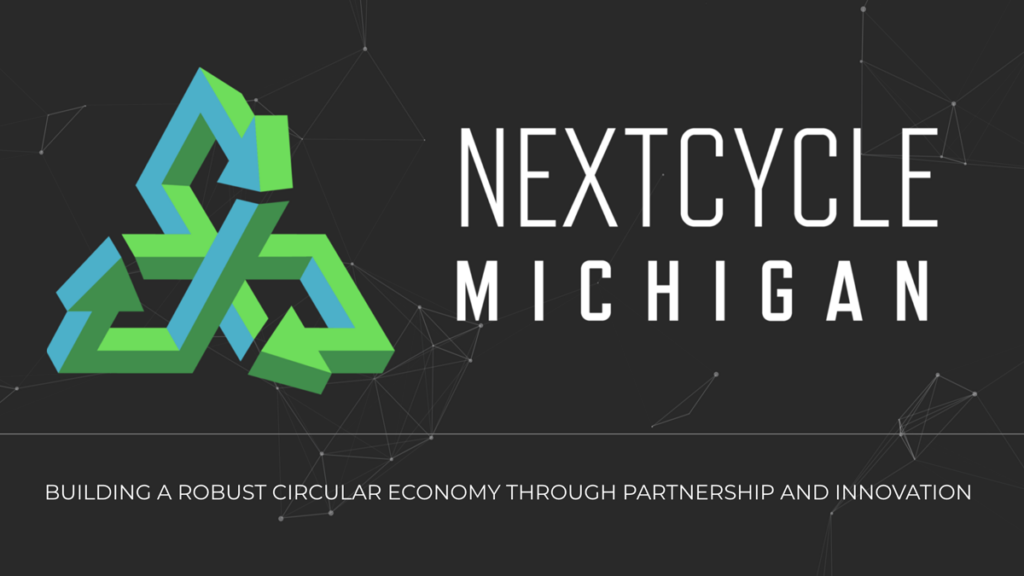
Are you an entrepreneur starting a new business using recycled materials? Are you an existing business that could use more recycled content in your product or have a hard-to-manage waste that could be recycled? Are you working on any investable project that diverts waste from Michigan landfills into higher-value uses?

NextCycle Michigan is a new initiative designed to accelerate improvements in recycling and develop end markets for recycled materials. Building on a successful model in Colorado, the Michigan Department of Environment, Great Lakes, and Energy (EGLE), along with public and private partners, is funding a new multi-year innovation challenge program to grow the state’s circular economy.
The state of Michigan landfills 6.8 million tons of material annually that could be recycled. Recovering 2.7 million tons of that material would result in a 45 percent diversion rate, nearly triple Michigan’s current rate of 18 percent. Moreover, according to a recent study conducted for EGLE by Ann Arbor’s Resource Recycling Systems (RRS), Michigan would also add $9 billion to its annual labor income and over $30 billion in direct and indirect economic activity.
EGLE joins with program partners RRS, Centrepolis Accelerator, and the Michigan Recycling Coalition (MRC) to spearhead NextCycle Michigan. Technical support for innovation challenge teams is a key benefit for teams selected to participate in this program. Program partners provide data-driven resources and engage the business community to assist participants in developing powerful business plans. The six-month process ends in an incubator pitch session with the winning teams receiving financial support for their projects.
NextCycle Michigan offers six Innovation Challenge Tracks offering support based on material, technology, and partnership:
- Food, Liquids, and Organic Waste (FLOWS): Focusing on organic waste.
- Small Grants (MICROS): Pursuing small-scale innovations for collection and processing; could offer seed-funding to promote teams into other challenge tracks.
- Recycling, Innovation, and Technology (RIT): Employing emerging technologies to grow Michigan’s recycling industry.
- Intergovernmental Initiatives Public-Private Partnerships (I2P3): Developing solutions through collaboration across state and local governments and the private sector.
- Roads and Pathways (ROADS): Repurposing materials into roads, recreational paths, and construction materials.
- Recycling Supply Chain (RSC): More broadly creating entirely new circular supply chains.
NextCycle Michigan aligns with the governor’s climate commitment to building a just and resilient carbon-neutral economy by 2050. Reaching the 45 percent diversion rate avoids seven million MTCO2e of carbon emissions annually, the equivalent to 3.5 times the emissions of Ann Arbor or Grand Rapids. NextCycle Michigan’s vision is for an equitable and sustainable circular economy where people in communities, businesses, and institutions enjoy safe, healthy, and prosperous lives. Accordingly, the challenge tracks will exemplify diversity, equity, and inclusion in their team and project selection.
How is NextCycle Michigan Funded?
NextCycle Michigan recruits public and private sector partners and sponsors aspiring to help champion Michigan’s circular economy. These sponsors, including EGLE, are providing funds for award pools and challenge prizes while bringing forward their industry-specific challenges that can be solved through NextCycle collaboration. Funding sources include economic development programs, venture capital, philanthropy, angel investors, pre-seed capital, municipal recycling and compost programs, and social impact investors, all of whom are seeking the untapped economic opportunity of Michigan’s circular economy.